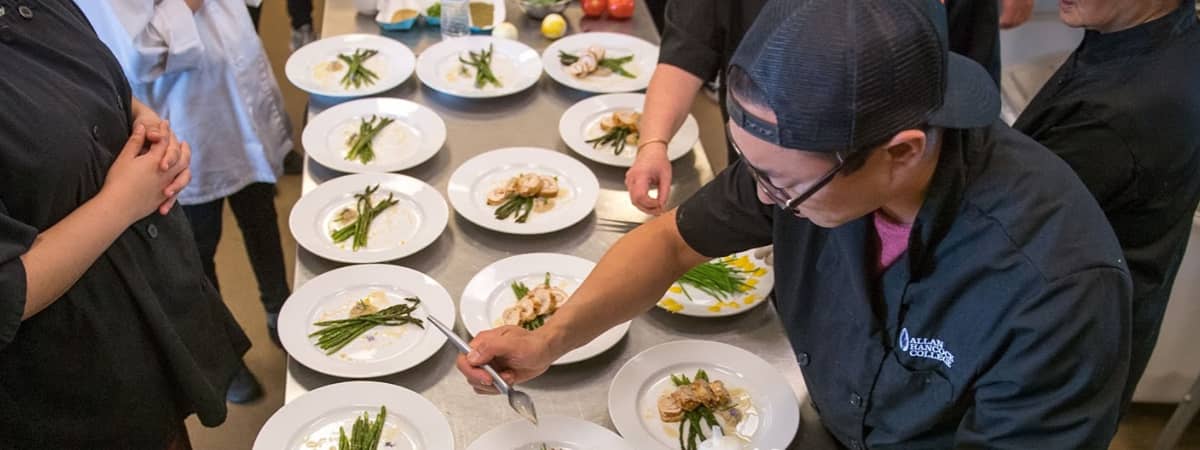Cook Up Your Culinary Career
If you love food, creativity, and hands-on learning, Allan Hancock College’s Culinary Arts and Management program prepares you for a fast-paced career in hospitality.
This program combines classroom instruction with real-world training in a professional teaching kitchen. Learn from industry-experienced chefs and managers while building skills in culinary arts, nutrition, and business operations.
Students create and sell food on campus, operate a bakery or restaurant, supervise teams, and complete a paid, credit-earning internship with local industry partners. Graduates are ready to enter the workforce or transfer to a university.
You’ll learn to:
- Prepare food safely and efficiently
- Cook and bake using industry-standard equipment
- Manage operations and adapt to business changes
- Communicate professionally
- Supervise and train staff
- Comply with food and beverage regulations
- Gain hands-on experience in a commercial kitchen
Degrees and Certificates Offered
Each program has unique requirements. The order in which you take courses may affect your completion time. Visit the links below to view the program requirements and a general semester-by-semester course schedule.
Associate in Science- Culinary Arts and Management
Certificate of Accomplishment- Culinary Arts and Management: Baking
Certificate of Accomplishment- Culinary Arts and Management: Catering and Events Management
Certificate of Accomplishment- Culinary Arts and Management: Food Production Supervision
Certificate of Accomplishment- Culinary Arts and Management: Food Services Production
Certificate of Achievement- Culinary Arts and Management: Restaurant Management
To view all available degrees and certificates visit the Allan Hancock College course catalog.
Programs you may also be interested in exploring...
Contact Information
Lee Gottheimer
Assistant Professor/Program Coordinator
Culinary Arts and Hospitality Management
Office: Community Education S-111
Office 805-922-6966 X 3823
lee.gottheimer@hancockcollege.edu
https://www.instagram.com/hancock_culinary
Department Chair
Thesa Roepke
805-922-6966 ext. 3436
troepke@hancockcollege.edu
Administrative Assistant
Sandra C. Orozco
805-922-6966 ext. 3401
sorozco@hancockcollege.edu
Dean, Academic Affairs
Thomas J. Lamica Jr. M.A.
805-922-6966 ext. 3261
Thomas.lamica@hancockcollege.edu
LOCATION
Santa Maria Campus
Bldg. S 111
805-922-6966 ext. 3823


